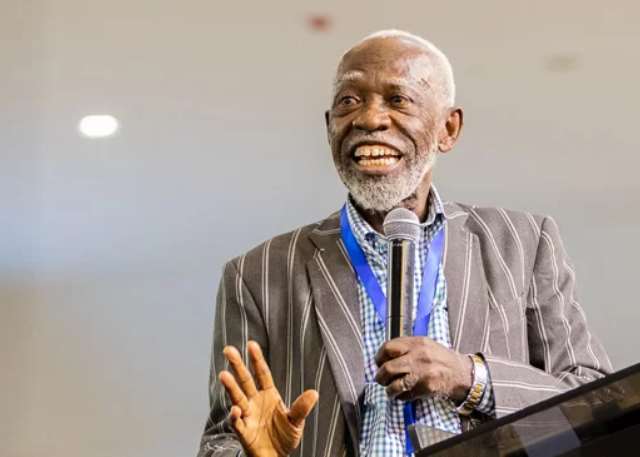Ghana’s ongoing debate over illegal mining (galamsey) has intensified, with educationist and former NDPC Chairman Professor Stephen Adei sharply criticizing the government’s GoldBod initiative.
In a video widely shared on social media, Professor Adei accused President John Mahama’s administration of effectively legalizing galamsey through the state-backed gold-trading scheme. He singled out politicians, traditional leaders, and security agencies as key enablers of environmental destruction, particularly the pollution of major rivers such as the Pra, Offin, and Ankobra.
“The politicians, chiefs, and security agents are responsible for polluting Ghana’s water sources, and they make it appear acceptable. GoldBod is essentially the legalisation of galamsey,” he stated.
GoldBod was established to formalize gold trading for small-scale miners, promote traceability, and act as the sole assayer and buyer of gold in Ghana. The initiative aims to improve the country’s international reputation and capture more revenue from gold exports, estimated at US$5–7 billion annually.
Professor Adei questioned the premise of GoldBod, arguing that if the government had the technical and political capacity to distinguish licensed small-scale miners from illegal operators, it could have strictly enforced regulations to curb galamsey. Instead, by setting up a sole state buyer, he contends, the government is effectively absorbing gold from the illegal sector rather than addressing the root cause of environmental damage.
His critique highlights the enormous environmental and economic costs of galamsey, which has already degraded over 80% of Ghana’s major water bodies, necessitating multi-billion-dollar investments in water treatment and ecological restoration. Adei warns that GoldBod may inadvertently legitimize illegal mining while failing to confront the sector’s destructive practices.

